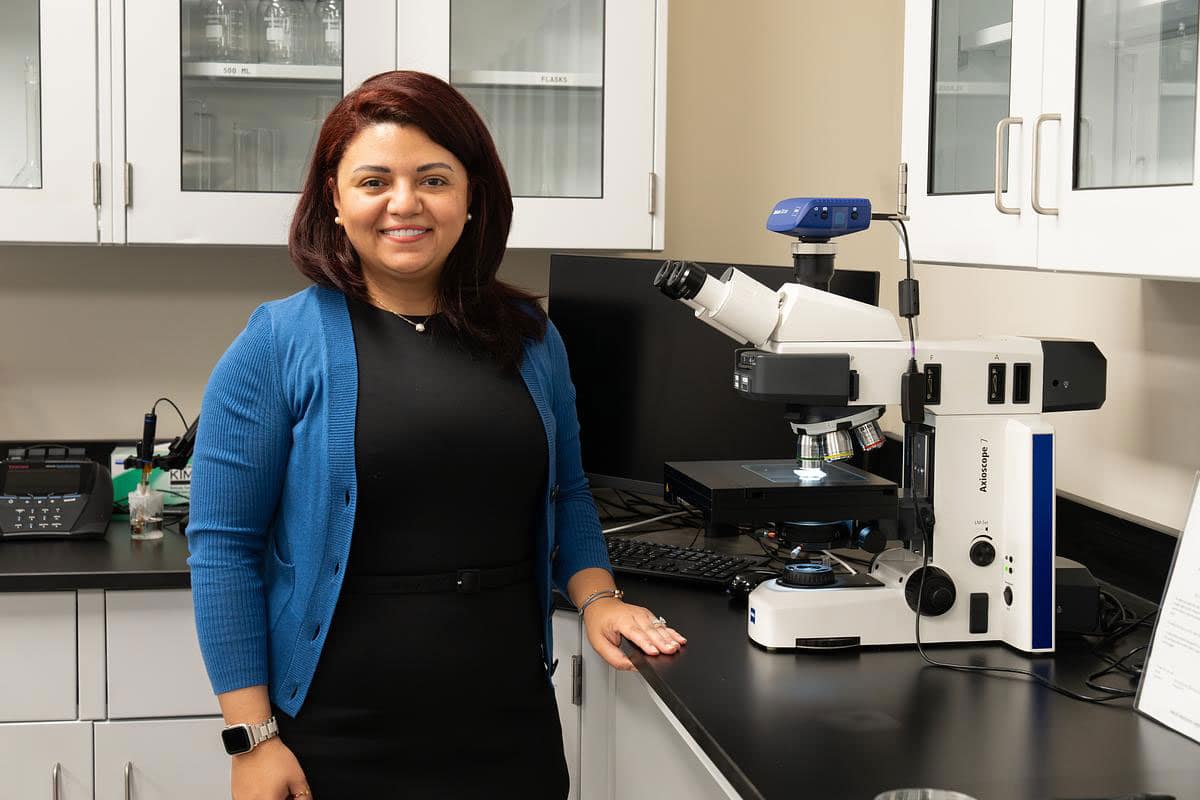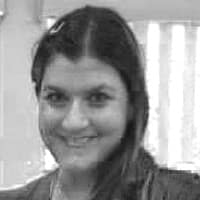Engineering Professor to Research How Wildfires Affect Microplastic Pollution Levels

When wildfires race through populated areas, they burn anything in their path, including tons of plastics, which emit a variety of chemicals into the air.
“Plastics are everywhere in our homes, from furniture and paint to flooring and textiles,” said Dr. Marwa El-Sayed, an assistant professor of Civil Engineering at Embry-Riddle Aeronautical University, as well as the director of the Sustainability and Environmental Engineering Lab (SEEL) on the Daytona Beach Campus. “When these items are being burned by wildfires, there is a whole new world of pollutants being released into the air that we don’t know much about.”
El-Sayed plans to shed some light on the topic, after being chosen as one of only 17 scientists from across the world to earn an exploratory research award from the Environmental Molecular Sciences Laboratory (EMSL), a U.S. Department of Energy Office of Science user facility sponsored by the Biological and Environmental Research program. This year’s EMSL awards represent a range of research projects focused on aerosols, plastic pollution, methane production and global climate change.
El-Sayed’s nine-month exploratory project will analyze micro- and nano-plastics formed and emitted from biomass burning. Her research will analyze these plastic particles and seek to determine their concentrations, size distribution and chemical composition at varying combustion conditions.
“Wildfires are a major issue in the U.S. and around the world,” said El-Sayed, whose research focuses on atmospheric pollutants and their impacts on human health and the environment. “Air moves freely, so we are all impacted, and we need to know what we are inhaling.”
The award will allow El-Sayed to use the EMSL’s state-of-the-art instruments, located at Pacific Northwest National Laboratory in Richland, Washington, to further her research. The exploratory project, beginning this month, will include at least six biomass burning experiments conducted in EMSL’s new biomass burning chamber. Samples from the experiments will be collected and analyzed.
“There is a lot more we want to study, but we first have to investigate on a small scale what is being emitted, so we can better understand their behavior later on,” she said.
Results from El-Sayed’s work will be analyzed to learn what emissions are created from houses burnt during wildfires, in addition to human-made open burns and incineration processes of plastic waste.
“These pollutants have a lifetime in the atmosphere and, in the atmosphere, they can undergo several chemical and physical process changes,” she said.
El-Sayed plans to publish the results of her project and hopes to continue collaborating with EMSL on further research.
“Using the results of this exploratory study, we will be able to develop more focused questions to address in future studies,” she said. “I envision this as not just a one-time collaboration, but the start of a longer collaboration between Embry-Riddle and the Environmental Molecular Sciences Laboratory.”

 Melanie Stawicki Azam
Melanie Stawicki Azam